Check out the list of Women who inspire us on this day and see their work in an Immersive Augmented Reality Exhibition
For centuries, the talents, stories, and creations of black and indigenous Latin American and Caribbean women have been silenced, erased, or exoticized by a colonial logic that still shapes imaginaries, economies, and cultural policies. However, each gesture of resistance of these women, whether in the weaves of the vine or in the threads of the turban, in the words sung in original languages or in the reinvention of diasporic knowledge, is a radical affirmation of existence, memory and future. They are the ones who, despite the structural violence that threatens their bodies and territories, keep alive the deepest roots of our continental identity.
The date of July 25, Black Latin American and Caribbean Women's Day, is also a call to recognize the ancient strength of indigenous women who have supported the cultural, spiritual, and ecological diversity of the Americas for millennia. It is the day when memory becomes a present to demand reparation, visibility and historical justice, both for the more than 11 million enslaved African people who forged our cultures with blood and creativity, and for the thousands of indigenous nations that survived colonization and continue to teach that the Earth is alive and that another world is possible.
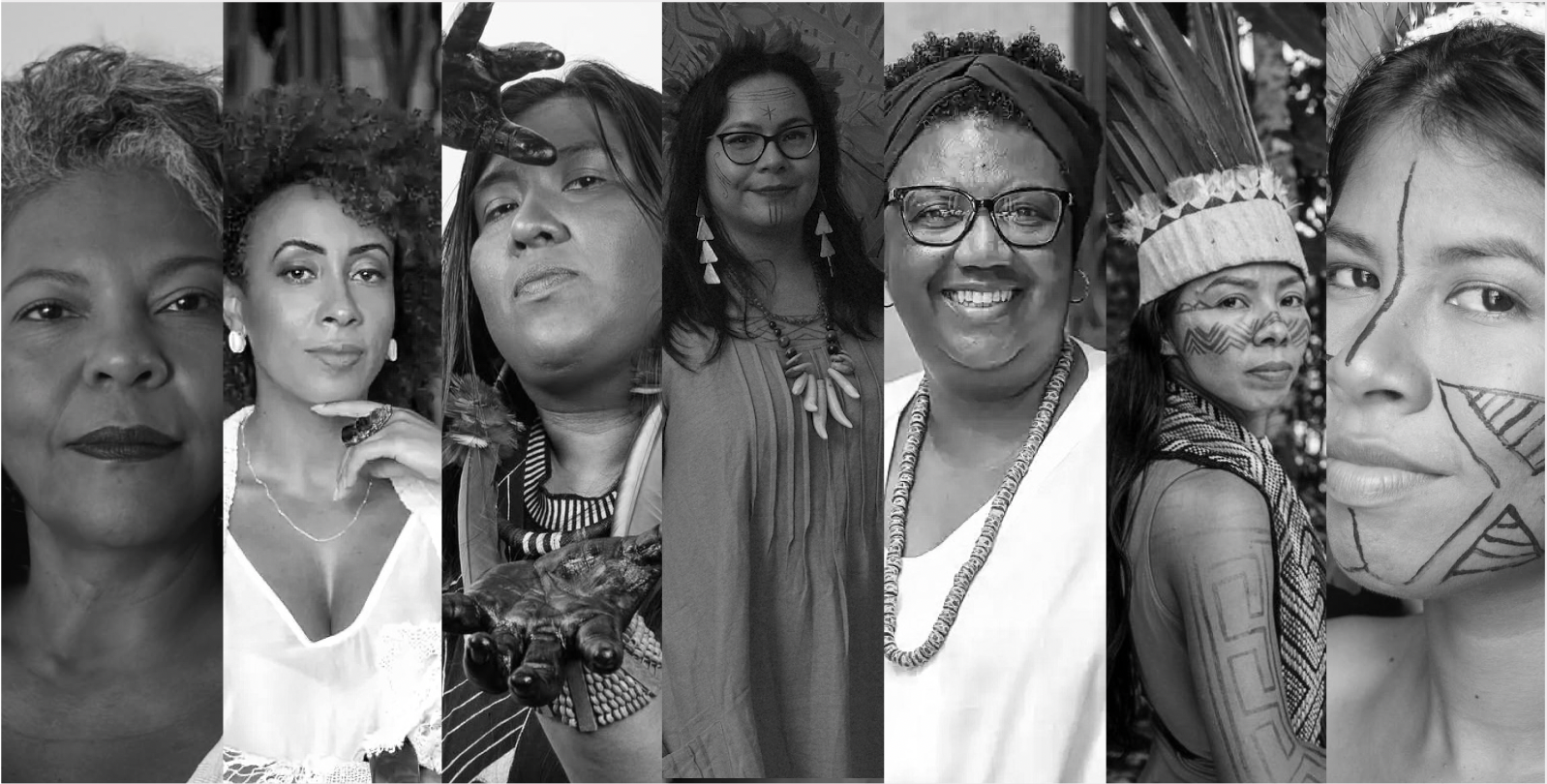
In Brazil, the country with the largest black population outside Africa and with more than 300 indigenous peoples, valuing the works, knowledge, and trajectories of these women is an act of rebuilding the country and reenchanting the world. It is necessary to transform fashion into a territory of complaint, art into ancient technology, and tourism into a critical and decolonial experience.
See the Exhibition's Augmented Reality experience and learn about the work of women we honored today:
Access the article on your cell phone and click on the button to see the cover in Augmented Reality in your own space
Work: Kahtiri wi'i — house of life, 2023
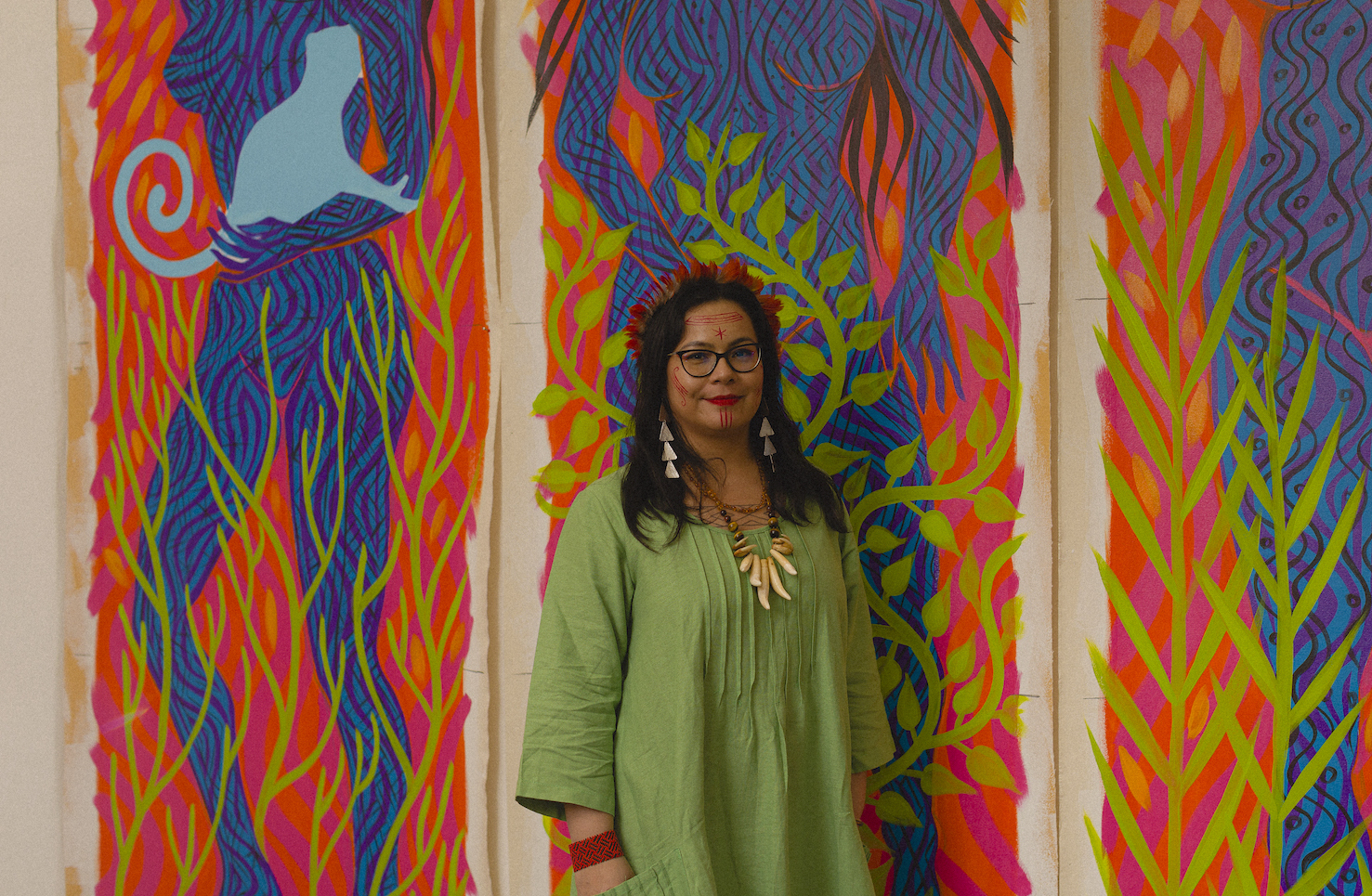
The choice of Daiara Tukano for the exhibition stems from the recognition of her trajectory as an indigenous artist, activist and communicator who, based on an aesthetic rooted in the cosmologies and struggles of the Tukano people, challenges the hegemonic narratives of Western art and fashion. His work carries messages of memory, spirituality, and resistance, visually reflecting the pain, knowledge, and possible futures of indigenous peoples of the Amazon.
Work: Modativism — When Fashion Meets Struggle, 2024
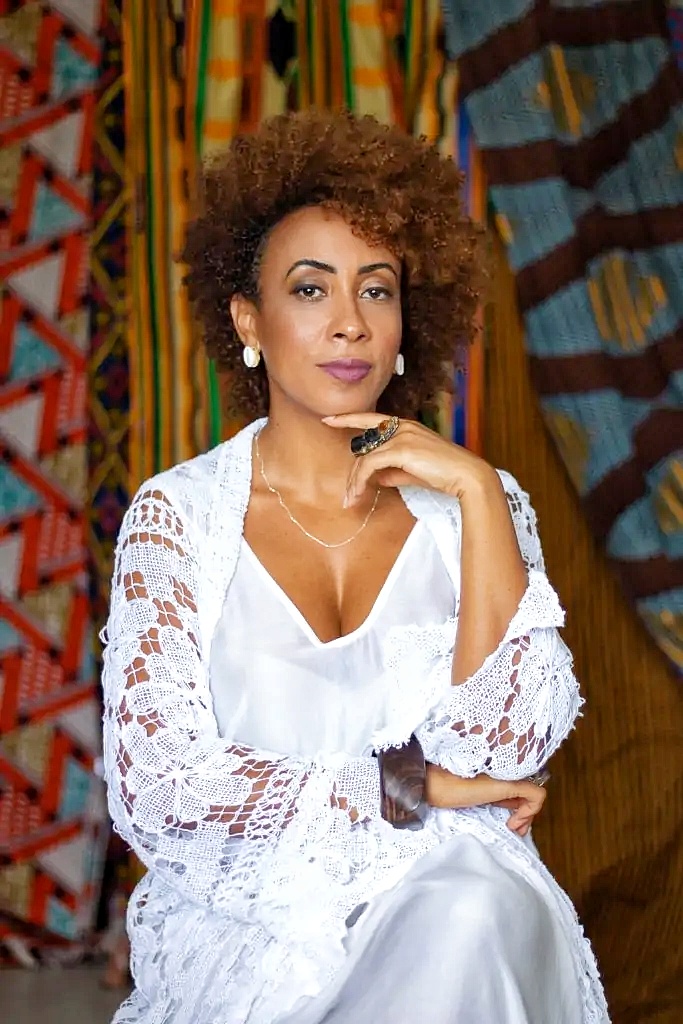
Designer, researcher, teacher and activist. Carol Barreto is one of the greatest references in modativism in Brazil, a concept that combines fashion and social activism. She not only creates, but also theorizes about fashion as a transformational tool for issues of gender, race, and sustainability. Her work goes beyond collections, involving academic and community projects that discuss fashion in a critical and purposeful way.
Work: Day and Night Dialogues, 2025
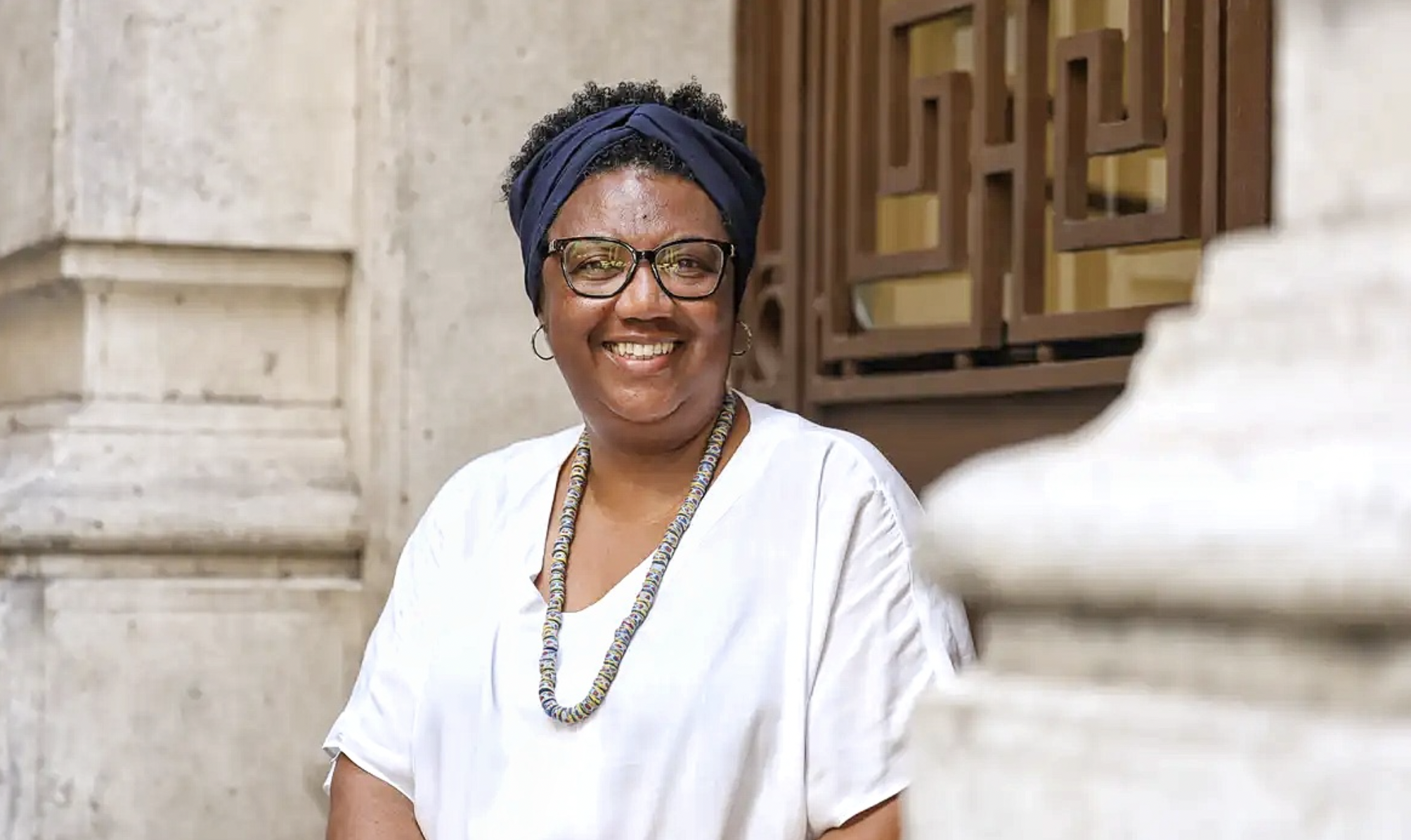
As an artist, he has stood out for his production linked to social, ethnic and gender issues. Her works focus primarily on the position of black women in Brazilian society and the various types of violence suffered by this population as a result of racism and the marks left by slavery. In Dialogues of the Day and Night, the artist presents a series of new paintings, contextualized in nocturnal environments, that challenge the historical subjectivities of black women.
Work: Body painting
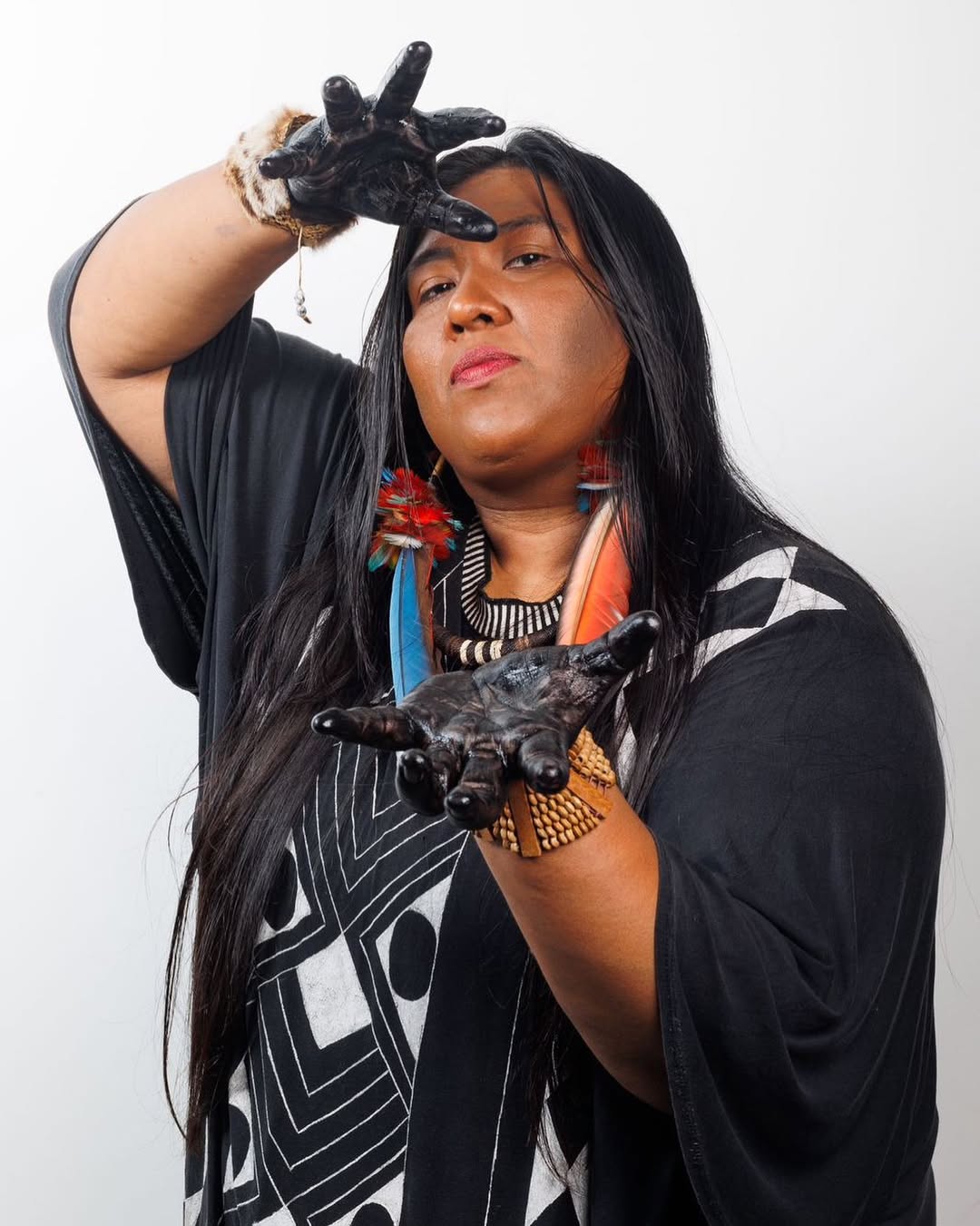
Artist and documentary filmmaker Thaís Kokama is nominated for her powerful and multifaceted role in safeguarding and disseminating the culture of her people. Her features, made with the sacred ink of Jenipapa, are not mere adornments, but the writing of an ancient history on her own skin. Each graphic is a visible link that connects the body to its cosmology, evoking protection, identity, and belonging to the Kokama people. This practice transforms body painting into a living manifestation of spirituality and, as her audiovisual work underlines, of resistance.
His work transcends art and becomes a political act, immortalized in his documentary “Traits of Resistance”. With this work, she expands her work beyond the skin, recording and narrating the struggle for memory and territory. Whether at workshops in Brazil or on movie screens, Thaís sows knowledge, representing a generation of artists that reforest culture for eternity. Her art, now also cinematographic, is a manifesto that marks the sacred space of indigenous identity, making her an indispensable voice for this homage
Work: Mother of Samaúma
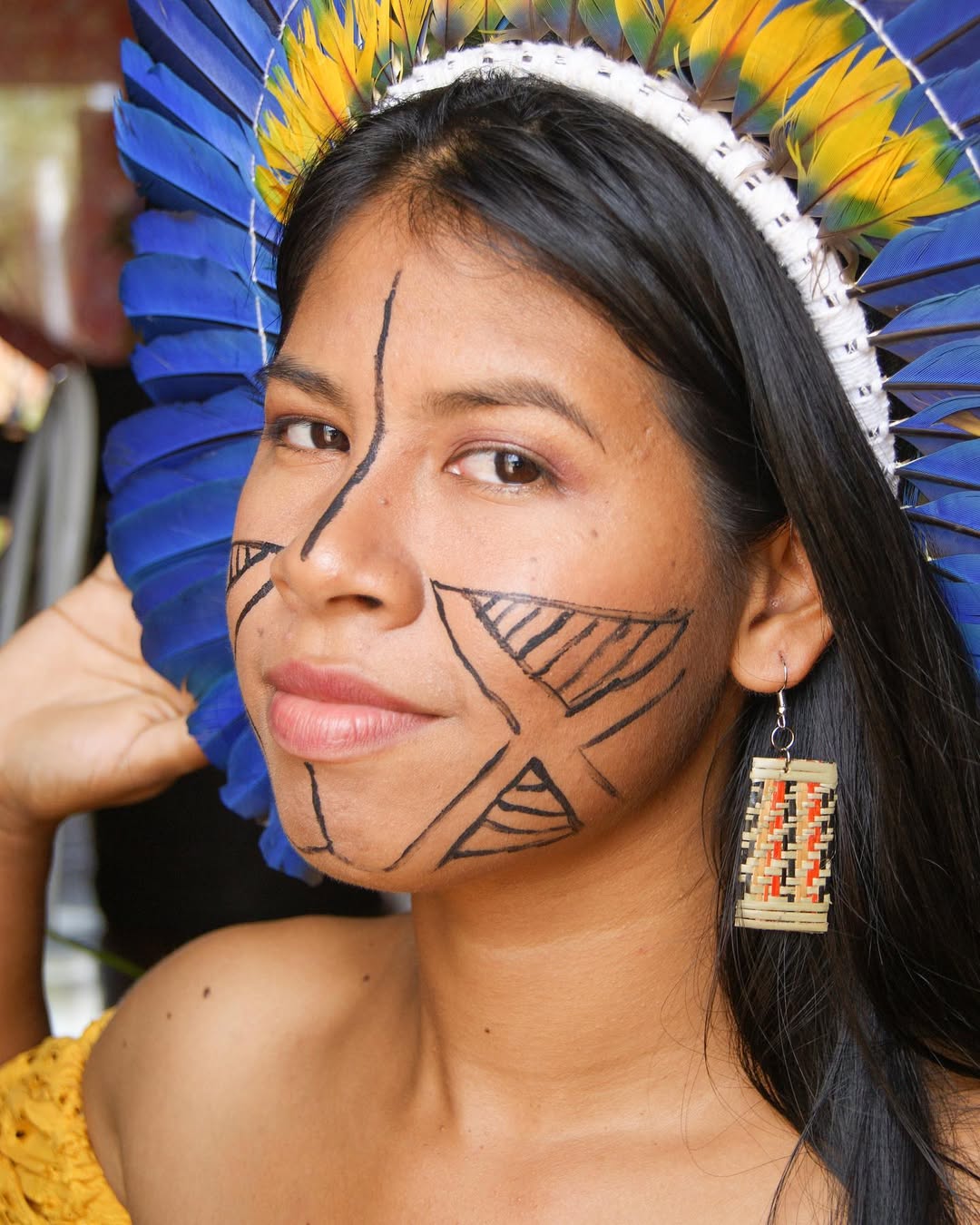
Carina Desana was nominated for her vibrant role as an entrepreneur, activist, and educator, representing the new generation of indigenous leaders who move and transform scenarios. It demonstrates a profound impact by strengthening the identity of its people, the Desana, through actions that combine tradition and innovation. In addition to creating illustrations, Carina helps her mother, Ercilia Desana, to create costumes and accessories, using fashion as a platform to celebrate culture, producing accessories with sustainable materials from the Amazon rainforest and using social media to expand the reach of her art.
Its strength is not limited to entrepreneurship. Carina is also an educator who fights for a narrative that values local knowledge and an activist for digital inclusion, creating knowledge bridges between indigenous and non-indigenous communities. By adopting her traditional name, Horopakó (“mother of flowers”), she personifies the beauty and power of cultural recovery, becoming an inspiring and essential voice for a tribute that celebrates the strength of indigenous women in Brazil.
Dressed in linen. It has graphics that represent snake scales, whose meaning is protection and strength.
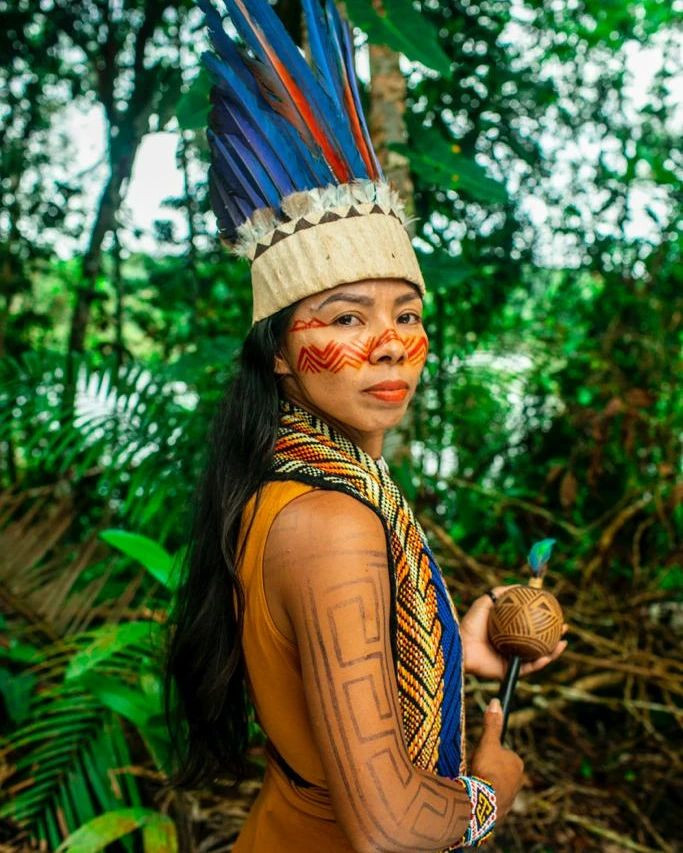
The nomination of Vanda Witoto for this tribute is justified by her multifaceted and essential role on the front line of the indigenous struggle. Her work as pedagogue and director of the Witoto Institute is a pillar for the strengthening and survival of her culture. Vanda gained international notoriety by leading humanitarian actions during the pandemic. Currently, her struggle for visibility is powerfully reflected in her work as creative director of Ateliê Derequine. There, she transforms fashion into a political and decolonial communication tool. Each piece recalls ancient graphics and symbols, wearing bodies with the identity, memory, and history of resilience of a people that hid their origins for decades. The studio is the materialization of the strength of indigenous women and a platform for activism, proving that fashion can be a territory of cultural recovery and a cry against erasure. Vanda thus personifies the intersection between ancient preservation and the creative avant-garde, being an indispensable voice for our time.
Santa Resistência Spring/Summer 2023 “Maria Mariá” Collection
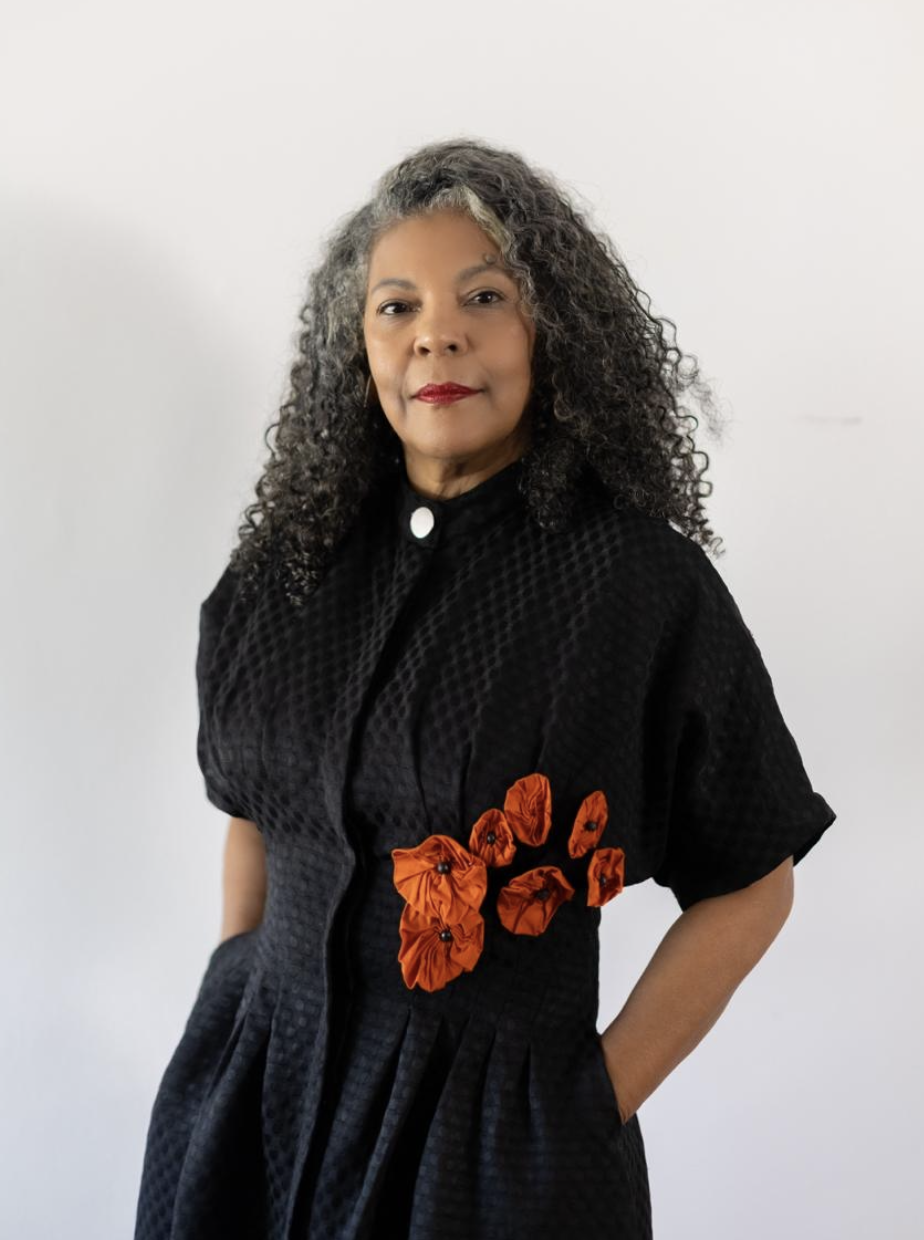
The choice of Mônica Sampaio to curate the celebration of Latin and Caribbean Women's Day represents a gesture of political, aesthetic and historical affirmation. An electrical engineer by training and stylist by ancient passion, Mônica rescues through her brand Santa Resistência the link between contemporary Afro-Brazilian fashion and diasporic knowledge that crosses centuries of resistance. His trajectory combines science, art and identity in a powerful way, revealing how clothing can also be a gesture of memory and territory. Creator of clothes that act as visual posters, Mônica transforms fabrics into narratives of belonging, spirituality, and reinvention. Her work guides fashion as a language for celebrating black women, reveres the legacies of the African continent, and enshrines the body as a space of complaint and beauty.
By opting for slow fashion, fair production and collections inspired by historical figures such as Elizabeth de Toro, the designer connects the art of doing with the politics of existence. A member of the Sankofa project and present at the SPFW, Mônica is a symbol of curatorial work rooted in collectivity, justice, and the creation of possible futures for black Latin-Caribbean women.